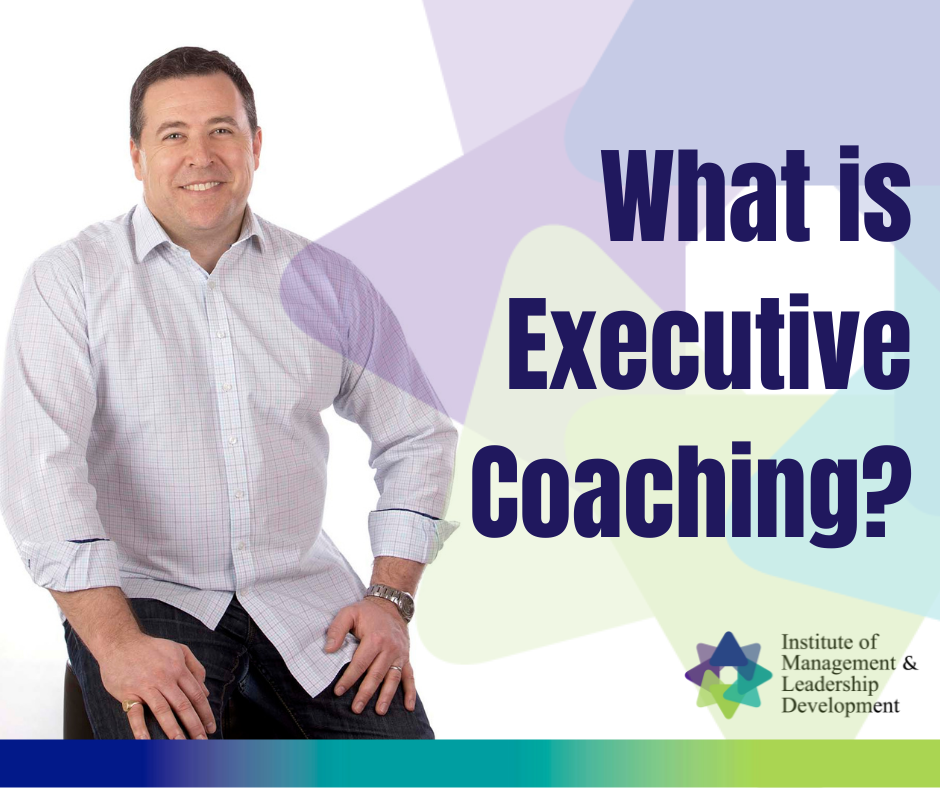In today’s fast-paced, competitive business world, CEOs often find themselves facing immense pressures and responsibilities that can feel overwhelming. They are expected to make high-stakes decisions, lead diverse teams, and navigate complex challenges while also setting a vision for the company’s future. As a result, CEO coaching has become an increasingly sought-after resource, offering executives the support and guidance they need to excel in these high-powered roles.
But what exactly does a CEO coach do? While coaching is a well-known concept, CEO coaching specifically tailors the experience to address the unique challenges and opportunities CEOs encounter. CEO coaching focuses on developing leadership skills, enhancing strategic thinking, and building resilience in a way that is deeply aligned with a CEO’s specific needs and goals.

A CEO coach is a specialized professional who works directly with CEOs to help them grow personally and professionally. Unlike other coaching types, such as life or general executive coaching, CEO coaching focuses specifically on the needs and challenges of chief executives. CEOs work in uniquely high-stakes environments, often facing demands that include making critical decisions, managing complex organizational dynamics, and balancing both shareholder expectations and employee well-being.
A CEO coach provides a blend of strategic advice, personal mentorship, and skills development that is tailored to the executive’s position and aspirations. For instance, a CEO coach may help a leader navigate a business restructuring, develop effective communication techniques, or fine-tune strategic thinking skills. They often combine insights from psychology, business management, and leadership science to support the CEO in achieving measurable growth.
The difference between a CEO coach and other coaches lies in the specific expertise and tailored approach they bring. They understand the particular pressures of leading a company and can offer advice and tools that address these challenges directly. By partnering with a CEO coach, executives gain a trusted advisor who not only supports their career development but also enhances their overall well-being.
Why CEOs Need Coaching
For CEOs, coaching isn’t just a luxury—it’s often a necessity. The role of a CEO can be isolating, with few opportunities to discuss sensitive matters or explore new ideas without bias. This isolation can hinder both personal growth and business performance, as CEOs may lack a safe space for self-reflection and feedback.
The top reasons why CEOs seek coaching include:
- Handling High-Stakes Decisions: CEOs are often responsible for decisions that affect the entire organization. A coach helps them weigh options, anticipate outcomes, and navigate potential challenges.
- Improving Team and Company Culture: Leadership style plays a significant role in shaping workplace culture. A CEO coach can assist leaders in fostering an environment of collaboration, trust, and innovation.
- Balancing Personal and Professional Life: CEOs frequently struggle with achieving a work-life balance. A coach offers guidance on setting boundaries, managing stress, and ensuring their well-being is not compromised by their workload.
Research backs up the effectiveness of CEO coaching. A study conducted by the International Coaching Federation (ICF) found that over 70% of executives reported improved work performance, time management, and team effectiveness after receiving coaching. Additionally, 96% of respondents said they would repeat the process, citing tangible benefits both at work and in their personal lives.
In short, a CEO coach acts as a supportive partner, offering a fresh perspective on business challenges, personal growth, and decision-making. With their guidance, CEOs are not only better equipped to lead their companies to success but also to enjoy a more fulfilling and balanced life.

The Role and Responsibilities of a CEO Coach
What Does a CEO Coach Do Day-to-Day?
The day-to-day work of a CEO coach involves a combination of structured sessions, ongoing support, and customized exercises that cater to the CEO’s unique challenges and objectives. Typically, a CEO coach meets with their clients regularly—weekly, bi-weekly, or monthly, depending on the needs and schedules of both parties. These sessions often follow a structured framework but are flexible enough to adapt to emerging priorities and issues.
In these coaching sessions, the CEO coach uses a range of techniques and methodologies designed to stimulate growth and foster meaningful insights. Here are some of the most common day-to-day responsibilities and activities a CEO coach undertakes:
- Reflective Questioning: CEO coaches use open-ended questions to encourage executives to think deeply and critically about their goals, strategies, and actions. This questioning helps CEOs gain clarity on their motivations and challenges and encourages new perspectives on potential solutions.
- Scenario Planning: A CEO coach often helps their client prepare for various business scenarios. This may include “what-if” exercises, where the CEO considers potential responses to industry changes, economic shifts, or internal company developments. Scenario planning equips CEOs to handle unexpected changes with agility and foresight.
- 360-Degree Feedback Analysis: Many CEO coaches employ 360-degree feedback tools to collect insights from an executive’s colleagues, direct reports, and stakeholders. The coach then guides the CEO in analyzing and interpreting this feedback, helping them identify areas for growth that they may not have noticed themselves.
- Leadership Exercises: A CEO coach may assign exercises or “homework” to help the CEO practice skills in areas such as communication, time management, or stress reduction. For instance, a coach might ask the CEO to conduct feedback sessions with team members or set up a self-care routine to maintain energy and focus.
- Accountability Check-Ins: Between formal sessions, many CEO coaches schedule quick check-ins via phone or email to review progress on specific goals. These check-ins keep the CEO accountable and on track with commitments, ensuring steady progress over time.
These activities reflect a hands-on approach that a CEO coach brings to the table. Unlike other forms of mentorship, which might be less structured or periodic, a CEO coaching relationship is often built on an intentional, systematic approach aimed at achieving measurable progress. By incorporating a variety of techniques, a CEO coach helps leaders develop the resilience and adaptability they need in a complex and ever-changing business environment.
Key Areas of Focus in CEO Coaching
CEO coaches focus on several critical areas that contribute directly to a CEO’s effectiveness. While each coaching relationship is unique, most CEO coaches emphasize these core areas to foster both personal and professional development.
- Leadership Development: At the heart of CEO coaching is leadership development. CEOs need more than technical skills; they require the ability to inspire, motivate, and guide diverse teams. A coach may work on refining a CEO’s communication style, strengthening their influence, and building their capacity to lead under pressure.
- Strategic Thinking: Successful CEOs must consistently see the big picture while making daily decisions. A CEO coach helps their client cultivate a strategic mindset, aligning actions with long-term goals and ensuring that decisions are consistent with the company’s mission. This focus on strategic clarity is vital, especially for CEOs operating in competitive or rapidly evolving industries.
- Emotional Intelligence: CEOs are regularly in high-stress situations that demand calm, empathy, and resilience. A CEO coach aids in developing emotional intelligence (EI), which includes self-awareness, empathy, and emotional regulation. Studies show that high EI is linked to better leadership outcomes, including improved employee morale, better decision-making, and stronger relationships with stakeholders.
- Accountability: One of the critical roles a CEO coach plays is as an accountability partner. Since CEOs are at the top of their organizations, they often lack direct oversight, making it easy to lose sight of personal and professional goals. A coach sets expectations, tracks progress, and holds the CEO accountable for their actions, keeping them focused and motivated.
- Work-Life Balance: Lastly, work-life balance is a major focus area in CEO coaching. Burnout among CEOs is common, given the demands of their position. A CEO coach helps establish boundaries, encourages healthy habits, and offers strategies to manage stress, enabling CEOs to sustain their energy and enthusiasm over the long term.
By addressing these areas, CEO coaching provides a holistic approach that benefits both the individual and the organization. CEOs who work with a coach often report feeling more confident, focused, and prepared to lead their teams through challenges and changes. The guidance and structure provided by a CEO coach not only drive personal growth but also lead to improved organizational outcomes, creating a ripple effect that benefits the entire company.

The Benefits of CEO Coaching
CEO coaching offers a unique blend of professional development and personal growth that has a transformative impact on both the CEO and their organization. Through this tailored approach, CEOs gain deeper insights into their own strengths and weaknesses, refine critical leadership skills, and acquire the tools they need to lead more effectively. Here are some of the core benefits of CEO coaching, highlighting both the personal and organizational advantages.
How CEO Coaching Impacts Business Performance
One of the primary benefits of CEO coaching is the measurable impact it has on business performance. Studies have shown that companies led by CEOs who receive coaching are more likely to see positive business outcomes, such as increased productivity, better decision-making, and higher employee satisfaction. Here are several ways that coaching directly influences business performance:
- Improved Decision-Making: CEOs face countless decisions daily, many of which have far-reaching implications. A CEO coach provides tools for structured decision-making, helping the CEO weigh options, anticipate potential outcomes, and make more strategic choices. For instance, a coach might introduce decision matrices or frameworks that help CEOs prioritize high-impact actions.
- Enhanced Team Dynamics and Company Culture: The way a CEO leads has a significant effect on company culture and employee morale. Through coaching, CEOs learn to communicate more effectively, inspire loyalty, and create a more inclusive, engaging workplace. A Gallup report found that companies with high employee engagement are 21% more profitable, highlighting the value of strong leadership in fostering a positive work environment.
- Increased Productivity and Efficiency: By helping CEOs focus on high-priority tasks and delegate effectively, CEO coaching leads to better time management and resource allocation. Coaches work with CEOs to streamline operations, minimize bottlenecks, and set realistic but ambitious goals. This productivity boost is felt across the organization as clearer priorities and goals lead to more focused and efficient teams.
Personal Growth Benefits for CEOs
While the organizational benefits are compelling, CEO coaching also has a profound impact on the individual executive. For many CEOs, coaching becomes a critical part of their personal development journey, helping them build resilience, emotional intelligence, and a greater sense of fulfillment.
- Reduced Burnout and Better Work-Life Balance: Burnout is a common issue among CEOs, as they often work long hours under immense pressure. A coach helps CEOs recognize the signs of burnout and encourages practices that promote well-being, such as setting boundaries, engaging in regular physical activity, and prioritizing mental health. Coaches often introduce mindfulness practices or time management techniques that empower CEOs to sustain high performance without sacrificing personal health.
- Improved Self-Confidence and Resilience: CEOs must often appear confident and calm, even when they face internal doubts or external criticism. Coaching helps build genuine confidence by encouraging self-reflection, addressing limiting beliefs, and celebrating achievements. By developing a resilient mindset, CEOs become better equipped to handle setbacks, which benefits both their personal growth and their ability to lead through challenges.
- Gaining an Objective Perspective on Strengths and Weaknesses: A CEO coach offers a neutral, objective viewpoint that many CEOs lack within their organizations. Coaches use feedback tools and reflective questioning to help CEOs identify and leverage their strengths while addressing areas for improvement. For example, through 360-degree feedback, CEOs receive insights from colleagues and direct reports that may reveal blind spots and allow for a more balanced self-assessment.
Case Study Example: The Transformational Power of CEO Coaching
Consider the case of a CEO in the tech industry who was struggling with decision-making under pressure. This executive faced a highly competitive market and often felt isolated in her decision-making. After engaging a CEO coach, she learned techniques for structured decision-making and improved her strategic planning skills. Within six months, her company saw a 15% increase in productivity, and employee retention rates improved due to the enhanced work environment. This example illustrates how CEO coaching can provide both personal and professional benefits, leading to positive ripple effects across an organization.
CEO coaching offers tangible advantages that go beyond the executive suite. By developing the CEO’s personal skills and providing tools for organizational impact, coaching improves the overall health of the business and fosters a more resilient and capable leader. The combination of enhanced business performance and personal growth makes CEO coaching a valuable investment for leaders who want to maximize their impact and lead fulfilling lives.

How to Find the Right CEO Coach
Finding the right CEO coach can be a pivotal step toward achieving both personal growth and business success. However, the process requires careful consideration, as each coach brings unique expertise, methods, and coaching philosophies. To make the most of this investment, it’s essential for CEOs to find a coach who aligns with their goals, values, and professional needs. Here’s a guide to identifying and selecting the ideal CEO coach.
Key Qualities of an Effective CEO Coach
When evaluating potential coaches, CEOs should look for certain core qualities that set effective coaches apart. These attributes are essential for creating a productive and trusting coaching relationship:
- Business and Leadership Experience: A successful CEO coach often has years of experience in business or leadership roles. This background enables them to understand the complexities of executive-level challenges and offer realistic, actionable advice.
- Strong Listening and Empathy Skills: CEOs need a coach who will listen intently without judgment and provide thoughtful responses. Empathy is crucial because it allows the coach to understand the CEO’s unique challenges, creating a supportive environment for growth.
- Trustworthiness and Confidentiality: Trust is fundamental to the coaching relationship. CEOs must feel confident that sensitive topics will remain confidential. An effective coach demonstrates integrity and professionalism, which helps build the trust necessary for open and honest discussions.
- Ability to Challenge and Hold the CEO Accountable: A good CEO coach is not just a cheerleader; they are also a challenger. They ask tough questions, push the CEO to confront uncomfortable truths, and ensure accountability. This balance of support and challenge is key to facilitating meaningful progress.
Steps to Selecting a CEO Coach
Choosing a coach can be a thorough process, and for good reason—this relationship will have a significant impact on the CEO’s career and potentially the entire organization. Here are steps to follow when selecting a CEO coach:
- Identify Personal and Business Goals: Before beginning the search, the CEO should have a clear sense of their objectives. Whether they want to improve decision-making, enhance emotional intelligence, or prepare for a specific business milestone, defining these goals will help them find a coach with the right expertise.
- Research and Shortlist Potential Coaches: Once goals are defined, it’s time to research coaches who specialize in these areas. Many CEOs rely on referrals, while others use coaching directories or professional organizations like the International Coach Federation (ICF) to find reputable coaches.
- Interview Potential Coaches: It’s essential to conduct interviews with a few shortlisted candidates to evaluate compatibility. Many coaches offer an introductory session to discuss their approach and answer questions. This meeting is an opportunity for the CEO to assess whether the coach’s style aligns with their personality and goals.
- Request References and Success Stories: A credible CEO coach should be able to provide references or case studies demonstrating their impact. Talking to previous clients can offer valuable insights into the coach’s effectiveness and what to expect from the relationship.
Questions to Ask a Potential CEO Coach
To ensure a good fit, CEOs should ask targeted questions during the selection process. Here are some important questions to consider:
- What is your coaching philosophy and methodology? This question reveals how the coach approaches growth and change. Some may focus on behavioral strategies, while others emphasize psychological or emotional development.
- How have you helped similar clients in the past? This provides insight into the coach’s experience with specific challenges relevant to the CEO’s situation.
- What would success look like in this coaching relationship? The coach’s answer will reflect their vision for the partnership, helping the CEO determine if they share similar expectations for progress.
Finding the right CEO coach is a crucial step toward unlocking new potential and overcoming challenges. With a carefully chosen coach, CEOs gain a trusted advisor who supports them in becoming more effective, resilient, and impactful leaders. Through a blend of experience, empathy, and accountability, the right coach can make a transformative difference in a CEO’s personal and professional life.